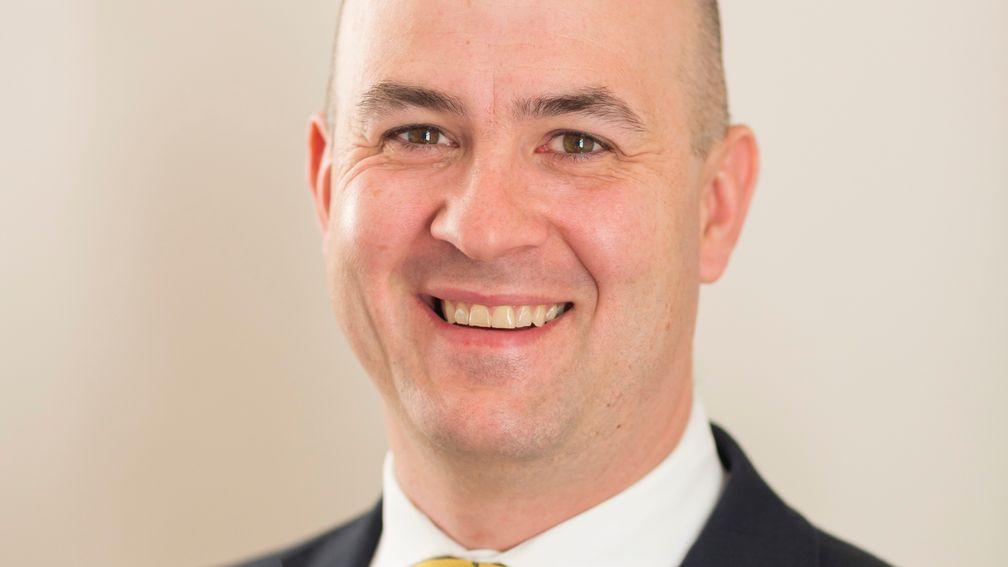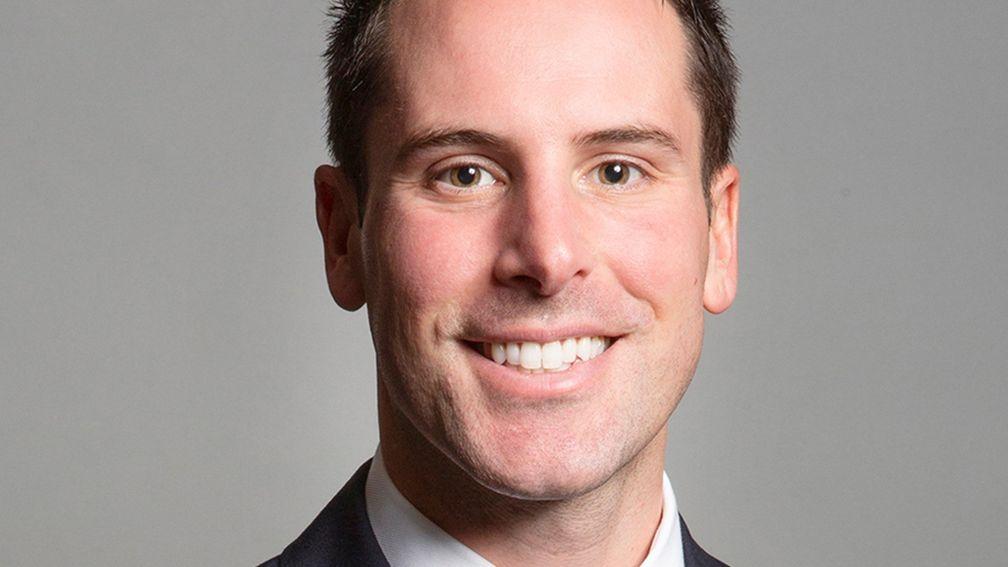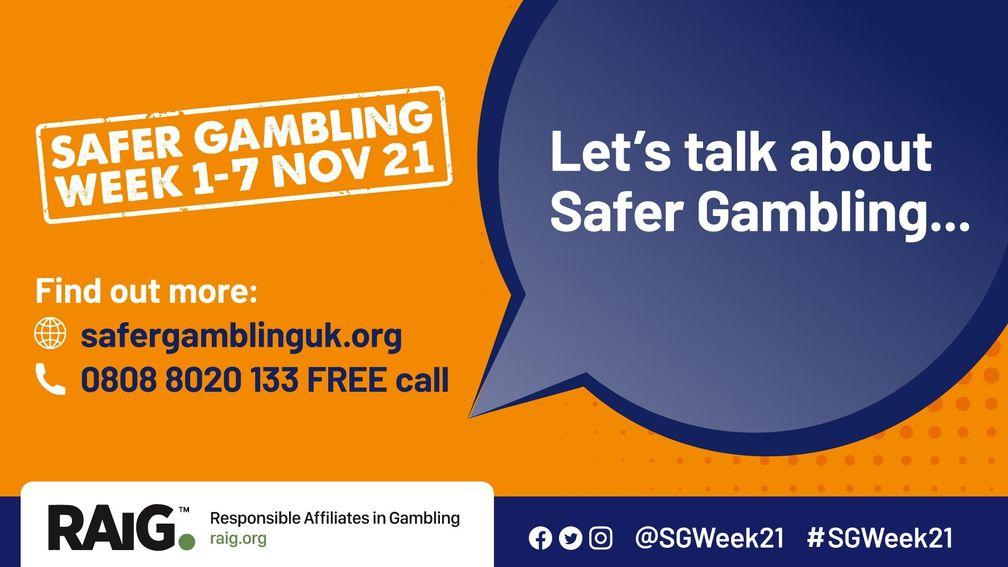'We still see far too many extreme cases' - Gambling Commission chief speaks out

In the unlikely event Andrew Rhodes was unaware of the powerful views surrounding gambling issues after becoming chief executive of the industry's regulator in June, he was soon made familiar with them.
Having taken to Twitter to engage with the users of the collapsed operator Football Index, Rhodes was met with abuse, insults and even death threats.
"They've got every right to feel angry and I don't want to take anyone's views away from them," he says. "But sometimes you say things that people won't agree with and they don't want to hear."
Rhodes, 44, joined the Gambling Commission in June from Swansea University, where he had overseen an investigation that led to the dismissal of a number of academics.
Before then he had held senior civil service roles at the Department for Work and Pensions, but he describes the gambling sphere as "far more charged and political" than those he had been involved in before. Nevertheless he says it is an "absolutely fascinating" area, with the sector the subject of a government review and the commission running a tender process for the fourth National Lottery licence.
Rhodes is speaking during the gambling industry's Safer Gambling Week, which he believes is about making sure people understand the risks of gambling and also protecting those who cannot manage those risks.
"My general view is the industry has the resources, knowledge and ability to achieve a very high level of compliance and safety and a very low level of harms," he says.
"We still see far too many extreme cases that everybody in the industry agrees we should not see. As one operator said to me today, 'We have to stop the own goals'. I think Safer Gambling Week is part of that."
Last week the commission released figures which showed the problem gambling rate had fallen to 0.3 per cent in September. Rhodes stands by the figures but cautions it is difficult to say whether the reduction is sustainable given the upheaval caused by Covid-19.
He adds: "I think everybody is right to treat these with a little bit of caution, not because I think they are wrong – I think they are right – but we need to understand what the continuing trend is because it has been such a disturbed period of time."
He also believes there is "a lot of room for improvement", adding: "There is a lot of variability between operators and we are still seeing a high level of compliance issues in our inspections that we would not expect to see.
"There are quite a lot of extreme cases of people losing tens of thousands of pounds in a very short window without intervention. We don't expect perfection but we are not seeing those cases reducing in numbers fast enough. They are not historic cases, as some would argue, they are real time and we are seeing them too often.
"A lot of progress has been made and I don't want to take away from that, but these own goals are why some people think the industry is not taking this seriously."
Rhodes also thinks the Gambling Commission has been making "some very good progress" through interventions such as the ban on gambling with credit cards and the crackdown on VIP schemes. However, the regulator has been beset with criticism, the most recent example being over the collapse of Football Index and the loss of tens of millions of pounds of customer funds. It led to a government report which found the commission should have acted much earlier.

The regulator has been accused of allowing a Ponzi scheme in the case of Football Index, but that is something Rhodes rejects. "I don't accept that we took no steps and had no intervention at all," he says. "I think the criticisms that are fair are that we could have drawn things to a close earlier but the outcome would have been the same."
Did the decision to license Football Index, which allowed customers to buy 'shares' in footballers and receive dividends based on how the players performed, betray a lack of gambling expertise at the commission?
Rhodes believes there was a "good understanding at the time" that this was not a traditional gambling offer and the company had demonstrated on a number of occasions that it was able to cover liabilities, but he adds: "With anything we think is novel and not what we might call more typical gambling, we now look at it differently in terms of what might its risk profile be in future, what exposure might it have."
The report into the collapse of Football Index was just the latest example of the criticism the commission has received in what has been a rough couple of years for the body. Words such as "torpid", "outgunned" and "not fit for purpose" have been used to describe the commission in various reports and Rhodes concedes there is a basis for some of the criticism.
"The industry is 800 times the size of the Gambling Commission, so in order to get the best outcomes you need to focus on where you can get the greatest impact with those resources and I think that's a key focus."
Rhodes says he does not expect the criticism to go away in what he describes as "an emotive, charged, political and opinion-heavy sector", adding: "There are things that we need to do better and I think there always will be."
The political pressure on the commission has still not relented, with the Parliamentary All Party Betting & Gaming Group currently in the middle of an investigation into the "competence and effectiveness" of the regulator.

Last week its chairman, Scott Benton MP, said the group had been "shocked" by the evidence it had received and the "abject terror" the gambling industry had of recriminations by the commission. Rhodes says he has not had indications of that in his dealings with operators.
"If there are organisations that feel abject terror from the regulator I would be surprised," he says. "It's definitely true there are operators who do not like being on the wrong end of enforcement action so the very easy answer to that is comply with the regulations and it won't happen."
One potential tool to use against problem gambling, which if not quite inspiring terror caused great concern for both the gambling and racing industries, is affordability checks.
In February a Gambling Commission consultation closed which included the possibility of the introduction of a threshold on net gambling loss of as little as £100 per month, which would lead to customers having to provide evidence they could afford to lose more.
British racing's leadership voiced its concern that the sport could lose upwards of £60 million a year from lost levy and media rights income if punters were put off by intrusive questions about their finances, and wanted it to be wrapped up in the government's gambling review rather than the commission taking unilateral action.
No doubt to their relief, that is the direction the issue is heading, albeit with a caveat.
"I think this is something that will most likely form part of our advice around the Gambling Act review," Rhodes says. "We don't plan to introduce something right now – but that doesn't mean to say we are going to wait for the final culmination of the Gambling Act review if we think there are things that we need to do to safeguard consumers."
Asked if he understands concerns about intrusion into private matters that do not take place with other areas of discretionary spend, he says: "I can understand people holding that view. I think it is different from a lot of other areas of discretionary spend because in those you don't see the associated harms."
In fact, Rhodes believes if people are being asked whether they can afford their gambling it should lead to reflection. "If you are getting those questions it is probably a good time to ask yourself whether you are comfortable about what you are doing anyway," he says.
The threat of stringent affordability checks has been cited as one of the potential triggers that might drive gamblers into the hands of the black market. That has certainly been the view of the Betting and Gaming Council, which commissioned a report published in February that claimed the number of British punters using black market websites had doubled.
Rhodes concedes the black market is a risk and says the commission is going to do more work in this area, although he adds: "I think we have to be careful not to overstate it and what we can't do is use it as a reason not to raise standards within the legitimate licensed industry. We can't have a race to the bottom."
The introduction of an innovation in which affordability checks would play a vital role moved closer recently when the Information Commissioner's Office advised that a 'single customer view', under which information from different operators is shared, could work under data protection law.
There have been fears that bookmakers would be able to use the information to restrict and close down successful punters, but Rhodes dismisses that possibility, saying there is "no potential" for it to happen.
"Single customer view is about triggers of harm behaviour, not triggers of successful gambling," he insists. "If the industry tried to build that you would see intervention from the regulator because that would be going well beyond what we are trying to do."
The future role of the Gambling Commission is uncertain with the Gambling Review ongoing, but Rhodes's ideal scenario for the regulator is for it to get to the position "where all we have to do is issue licences".
He adds: "We will never get all the way there but that is really where I would like us to be. We shouldn't need to take action."
Read more:
We can all learn how to be a better friend to a fellow bettor in need
'People suffering harm can sound very confident they don't have a problem'
Be honest with yourself and record all your bets to help stay in control
'If a customer started betting £200 each-way you'd say, that's not like you'
Why all punters should be paying attention to Safer Gambling Week
Breaking the invisible barrier: the stigma of talking about problem gambling
Women and gambling – are the right actions in place to tackle a growing problem?
Safeguarding gambling industry staff is overdue and needs to become a priority

The Racing Post fully supports Safer Gambling Week and acknowledges it as an excellent opportunity for us all to reflect on whether we keep our gambling in check. Although Safer Gambling Week is only seven days, its message is ongoing and remains important. We have lots of resources available on our dedicated Safer Gambling page and more details can be found at safergamblinguk.org.
Published on 4 November 2021inNews
Last updated 17:20, 4 November 2021
- The latest edition of the Racing Post is available to read online now - here's how you can access it
- How Smart View recorded a 76 per cent profit at the Cheltenham Festival
- Smart View is available on the Racing Post app - how to read the revolutionary new racecard
- Levy reform talks 'accelerating' as clock ticks down to April deadline for agreement
- Kieran Shoemark lands another plum Meydan ride for Gosden stable on Trawlerman in Saturday's Dubai Gold Cup
- The latest edition of the Racing Post is available to read online now - here's how you can access it
- How Smart View recorded a 76 per cent profit at the Cheltenham Festival
- Smart View is available on the Racing Post app - how to read the revolutionary new racecard
- Levy reform talks 'accelerating' as clock ticks down to April deadline for agreement
- Kieran Shoemark lands another plum Meydan ride for Gosden stable on Trawlerman in Saturday's Dubai Gold Cup